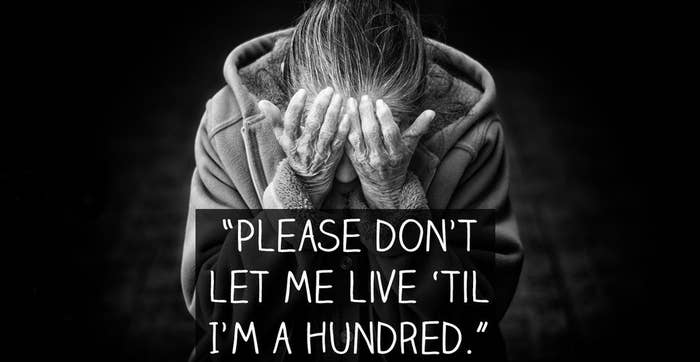
Scientists from Cambridge University have interviewed a group of over-95s, to find out what they think about death and dying.
They spoke to 33 elderly men and women, and 39 "proxies", usually relatives or carers, to ask them about the arrangements they'd made for death, how they felt about dying, and what care they wanted if they got ill. The study is published in the journal PLOS One.
More and more Britons are living to a very old age, but we don't know a great deal about how people at that stage of life feel about death.
The Office for National Statistics (ONS) says there were 550,000 people aged 90 or more in Britain in 2014, more than ever before. That's up by 150,000 in just 10 years and three times what it was 30 years ago.
But a review of the scientific literature found very little research into how the very old feel about death. Another found that while most old people would like to discuss how they should be treated at the end of their lives, only a minority actually had the opportunity.
The study found most of the interviewees were not afraid of dying.
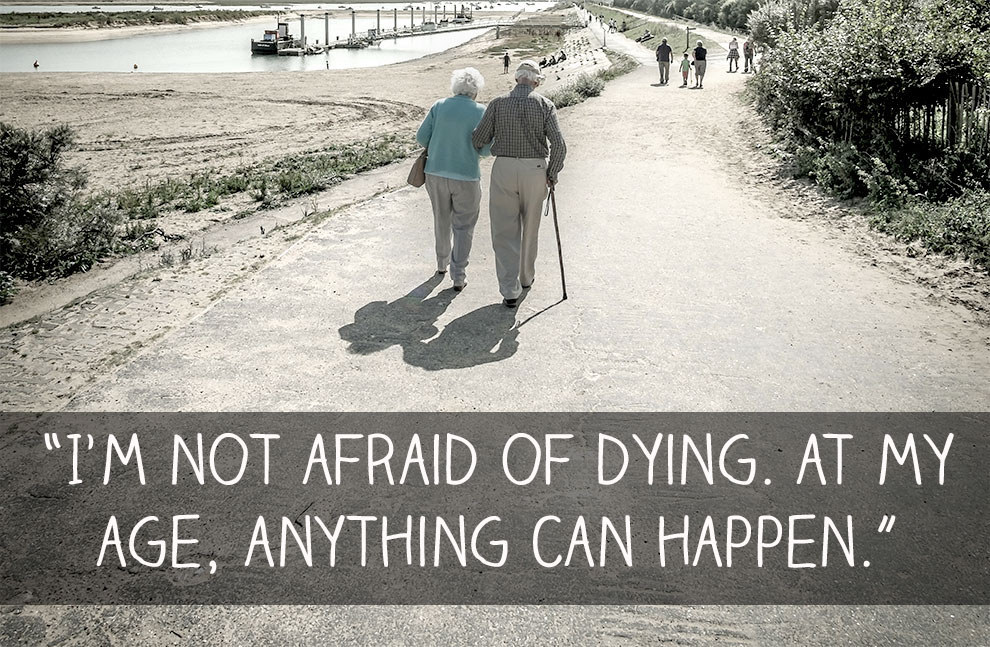
They had experienced the deaths of others and realised there was little to fear.
One said: "When I look back in my family, my parents, they were alive, then they were dead, but it all went off as usual. Nothing really dramatic or anything. Why should it be any different for me?"
Some worried about the impact of their deaths on loved ones.
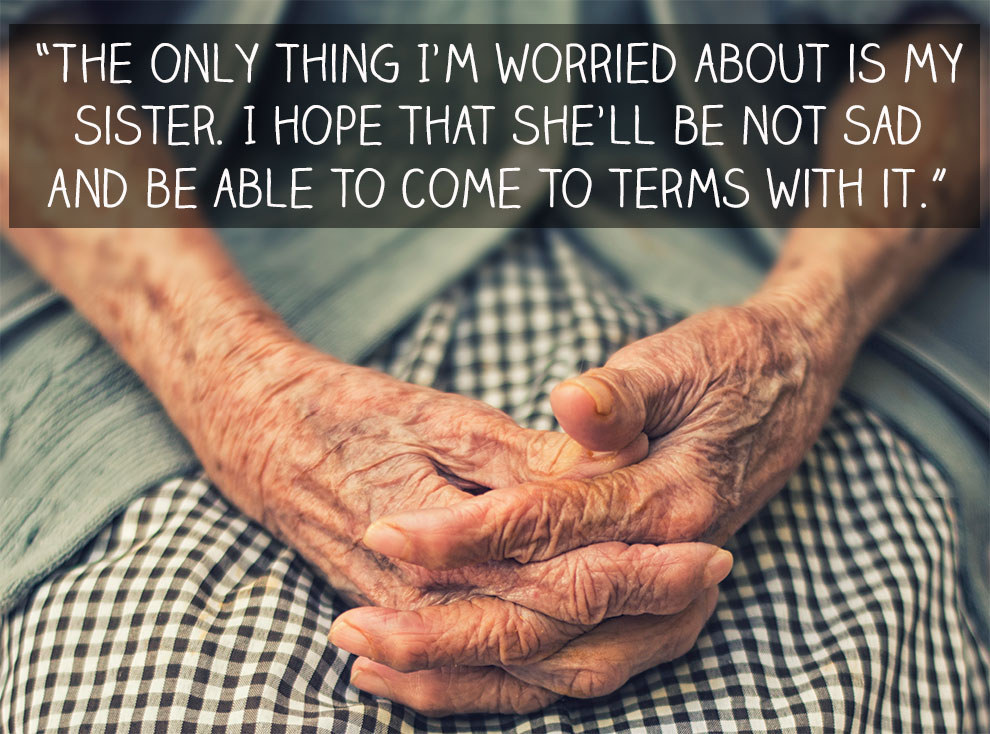
This interview went on:
Participant: "That's if I go first. She may go first."
Sister: "Well, it's something we don't know, isn't it? Just can't say."
Participant: "That is the reason, my love, for just letting it drift with the tide."
Many were more concerned about the manner of death than the fact itself…
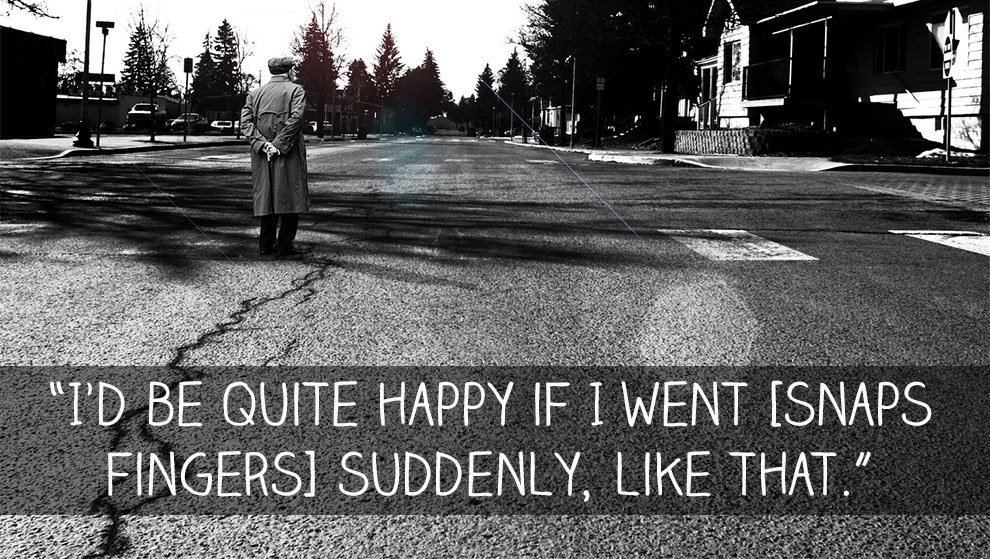
…and both they and their proxies often saw a quick, painless death as a positive thing.
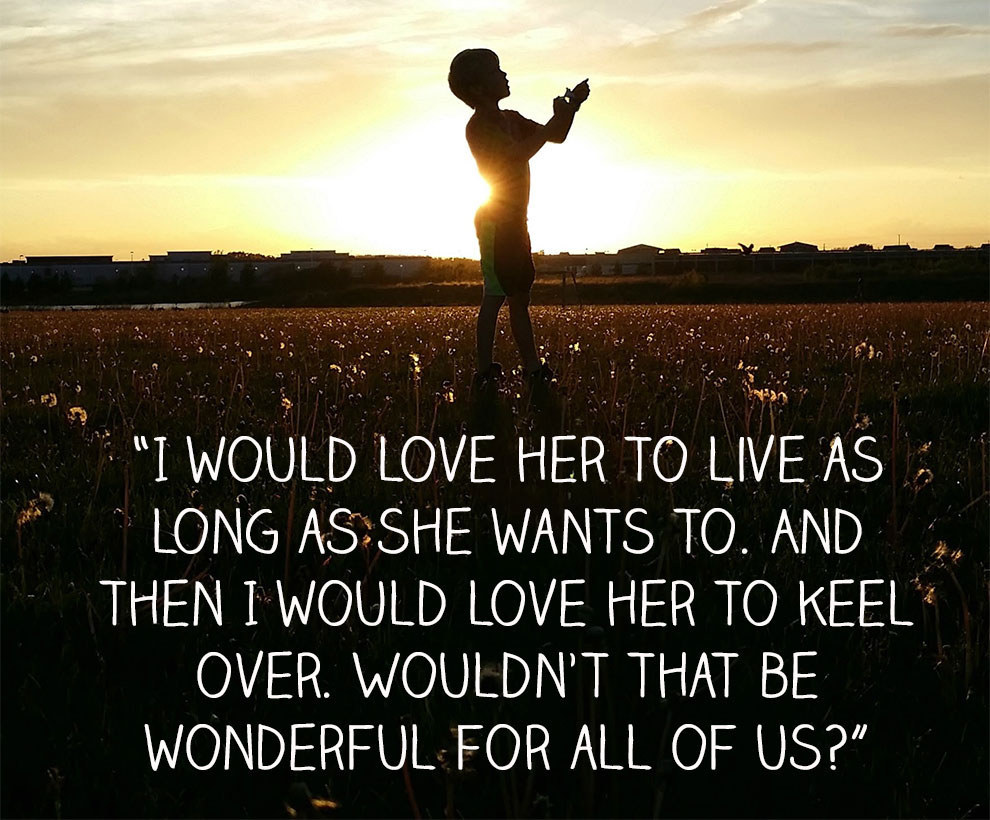
Some found comfort in faith…
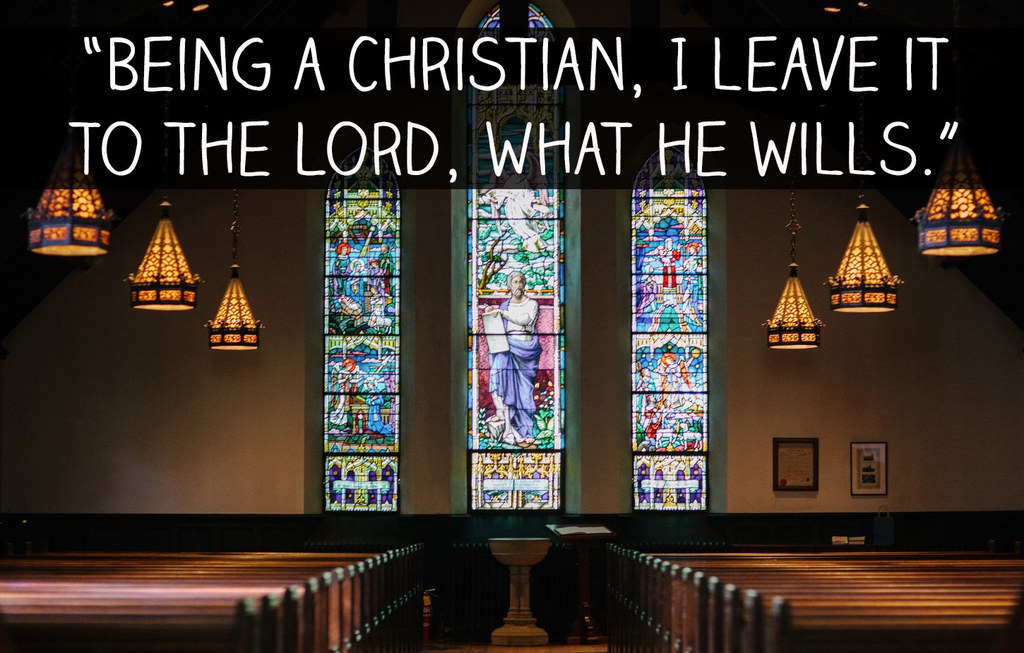
…and others in a lack of it.
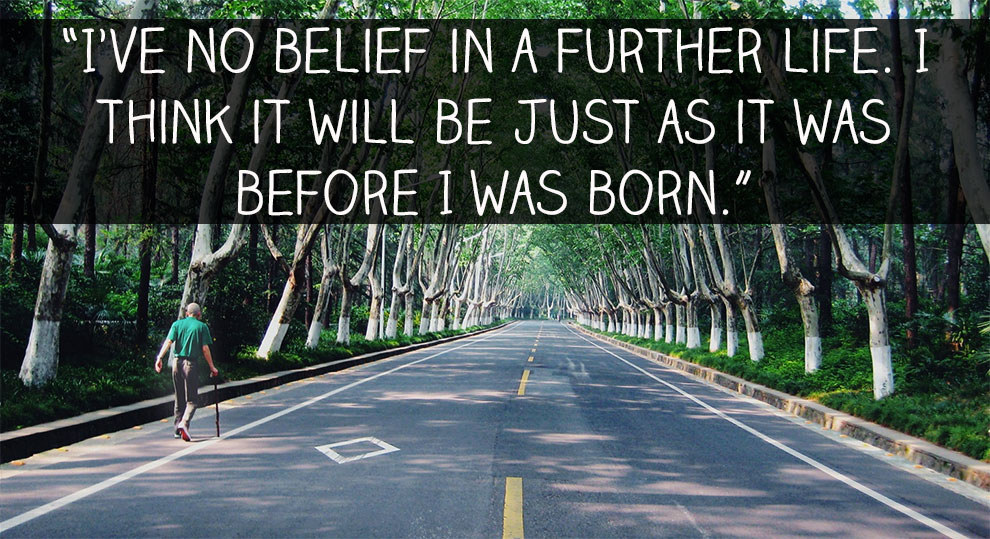
Some had made their preferences for their funeral arrangements clear; others had not.
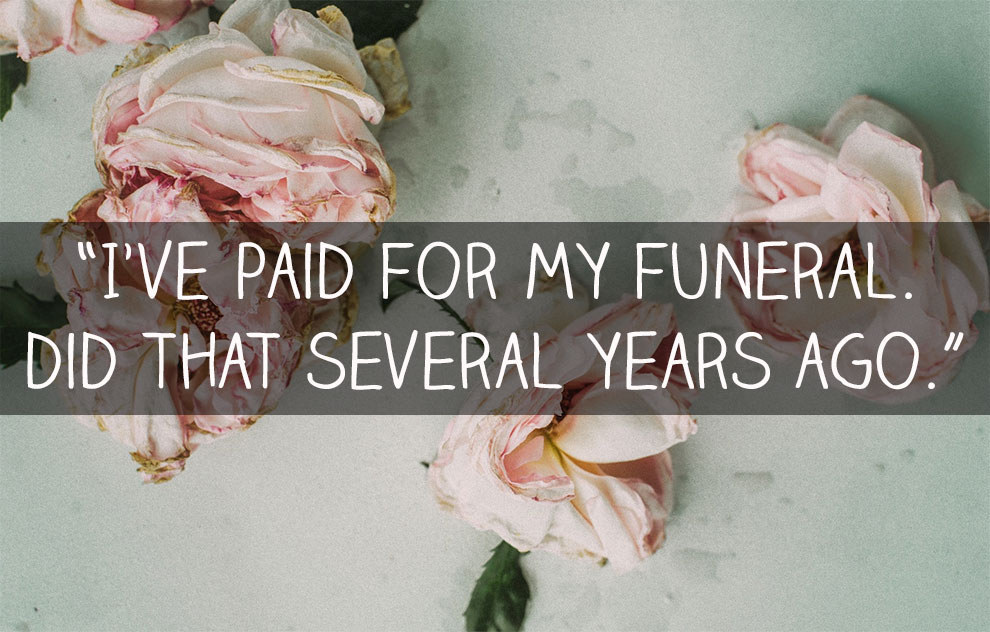
Some were well organised. One carer told the interviewers: "She's written her little sort of obituary of herself and her life. She did this a few years back." Others had not discussed it at all.
Some spoke about end-of-life care, and euthanasia.
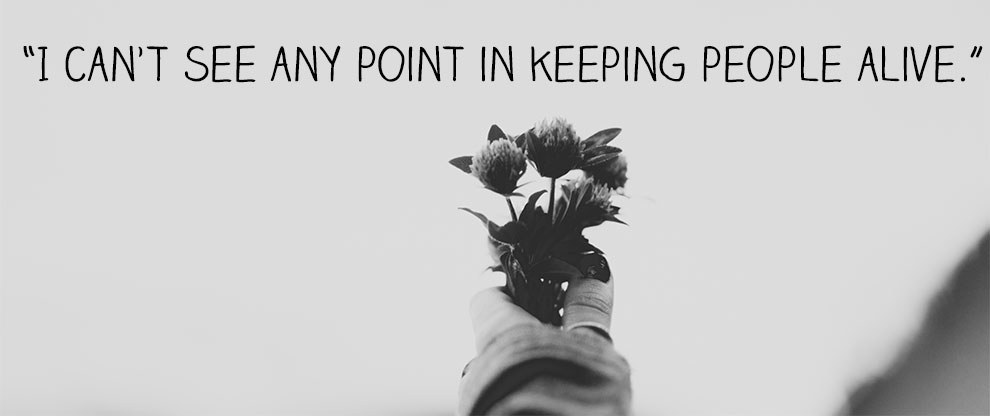
Several said that they would rather be "put out of their misery" than lie in hospital, and many – but not all – said they would not want to be resuscitated.
The deaths of friends and family were difficult for many.
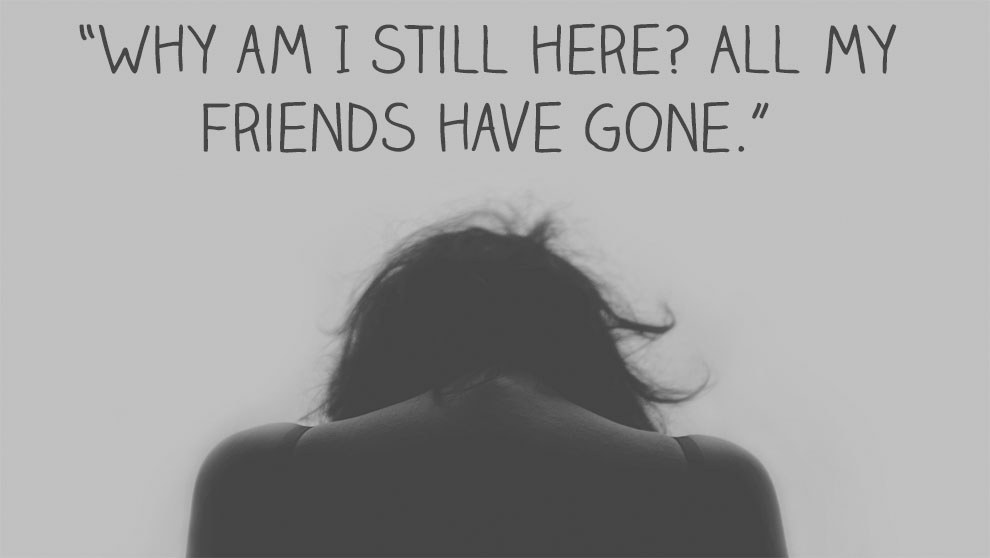
"The age of these older people was so great that most of their contemporaries had died," the study reports. One proxy said that her mother measured it by the size of her Christmas card list – "down to five now".
Some reported feeling like a burden on their families…
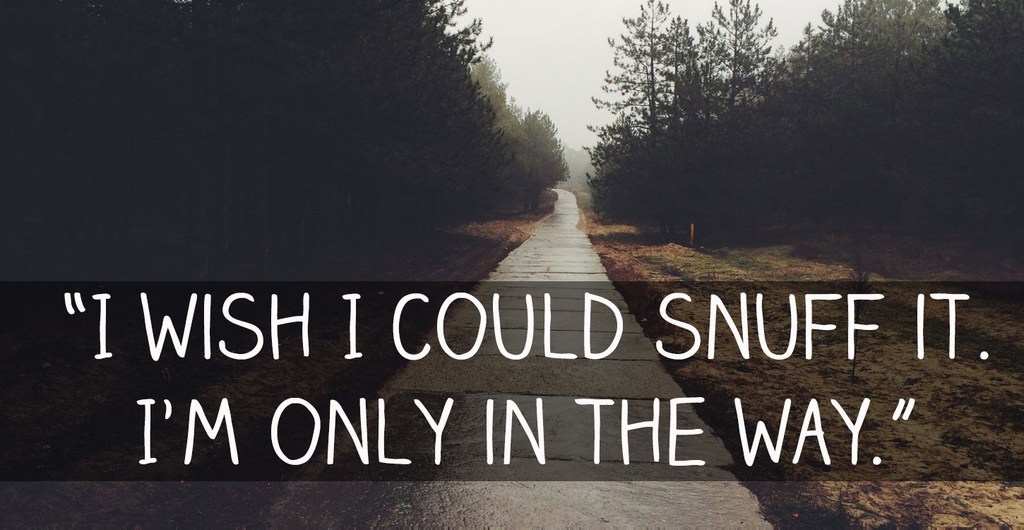
…and struggling with depression.
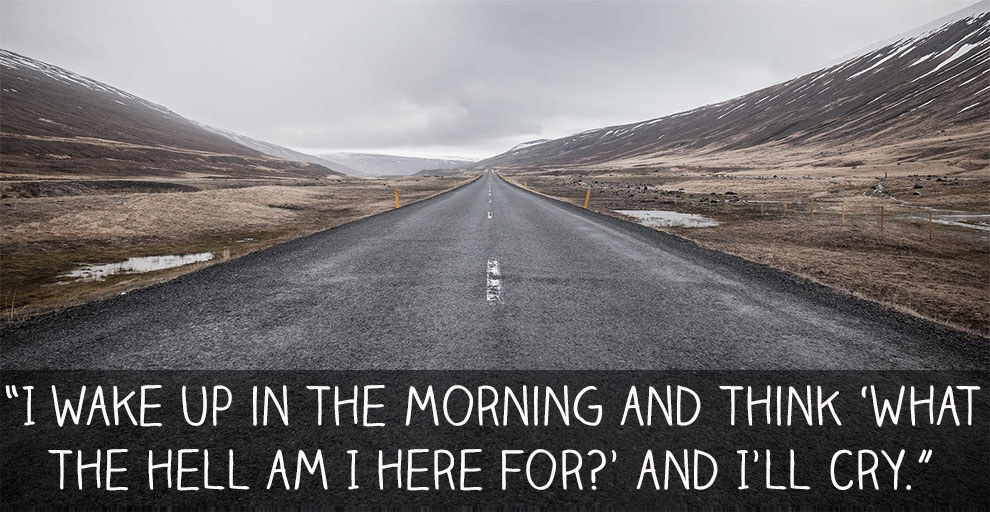
Some thought they had simply lived too long. One proxy quoted her mother as saying "Please don't let me live 'til I'm a hundred."
But most had come to terms with death, and some were able to laugh about it.
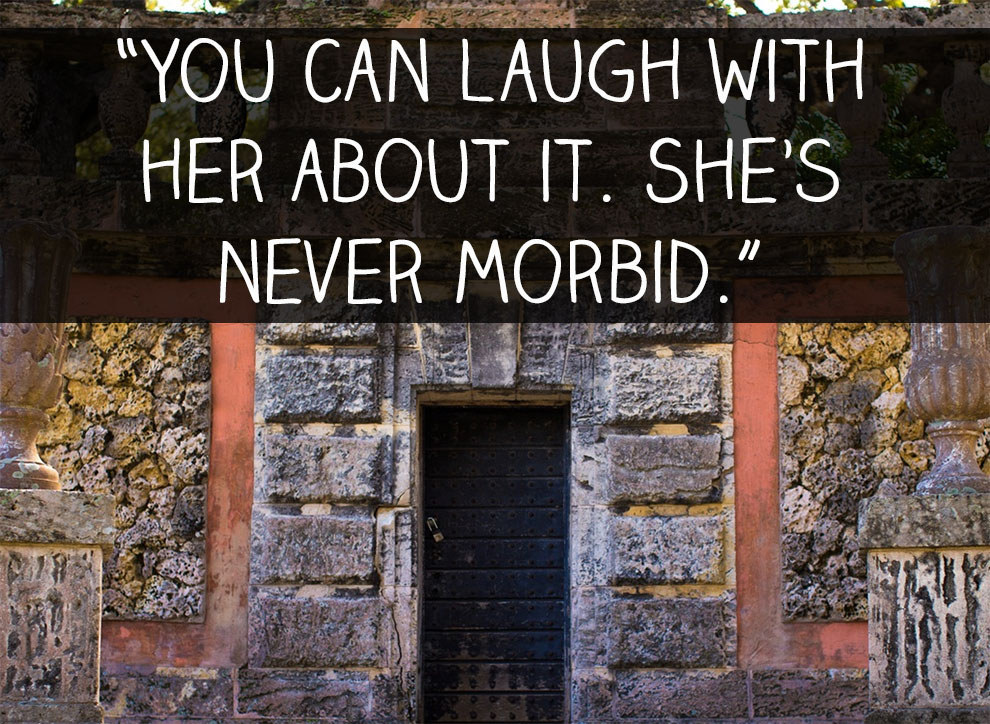
This proxy said of her mother: "The other day she said, 'I should think I'll snuff it soon, don't you?' I said, 'I don't know, you tell me' and she just laughs."
